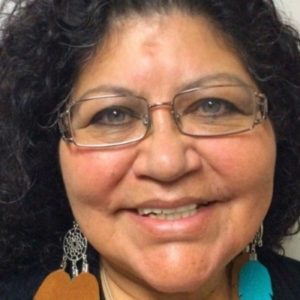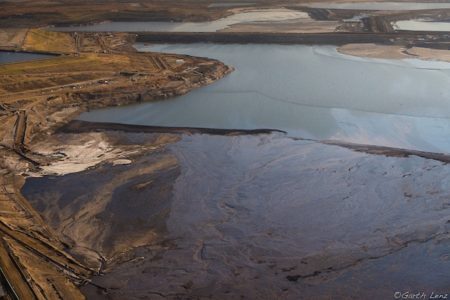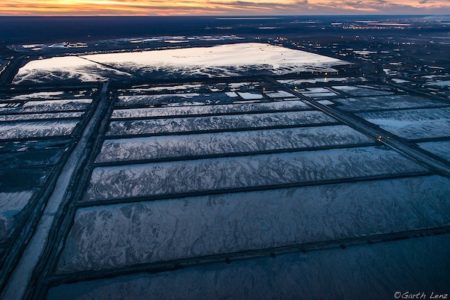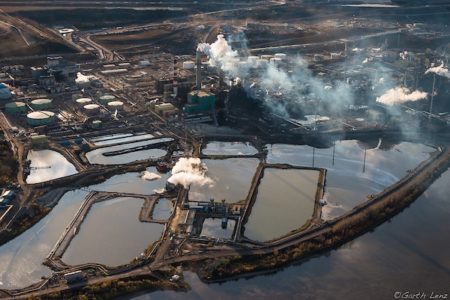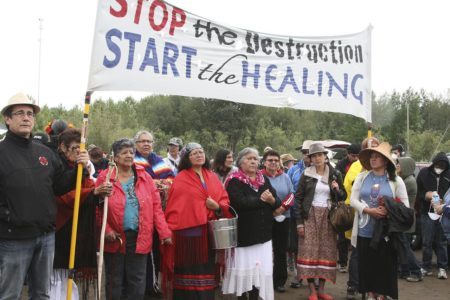Workshop XIII, Cleo Reece, 15 October 2020
Cleo Reece was born in Fort McMurray, Alberta, Canada. A Cree Métis activist and filmmaker, she cofounded the Keepers of the Athabasca Watershed Society in 2008 in response to her community’s concerns about water. Keepers of the Athabasca Watershed Society are engaged in pedagogical work towards ecoliteracy. They organize workshops about climate change and educational activities, including a curriculum for a sustainable future for children of up to 12 years old.
In 2010, Reece introduced the Healing Walk, which is a means to bring attention to the oil industry and the impact of pollution upon communities. Reece tells us that people from her community are aware of the many changes their land and landscape are going through as a result of the degradation of the environment. Rabbits, and wildlife in general, have stopped being a staple.
For her community, oil was simply part of the land. They used it to caulk their canoes and never thought of using it for economic purposes. Her community is still dealing with the after-effects of colonialism: they are not on equal terms with the rest of society. Reece is also a blanket exercise facilitator. The blanket exercise emerged in the 1990s, seeking reconciliation between government and native people, as a tool to teach the history of native people from pre-contact until the present. This participatory, emotional way of learning seeks to break barriers. “When you sit on the blanket, you become a native person and you learn from their perspective.”
The traditional stories of Reece’s community feature a trickster called Wisakedjak, who is part-animal and always trying to trick animals. No matter what this trickster does, nature always reasserts itself. Her community has an organic relationship with nature which has a spiritual component to it: they love nature. Reece is also reminded of the Dakota people’s Black Snake Prophecy, which equates fossil fuels to death.
People from Fort McMurray work for the oil industry to make money, although they are aware of the environmental impact, despite the new technology currently in use. There are always spills. The unhappiness of many of the oil workers is also reflected in the high levels of drug use. A minority with specialized training have benefited from the oil and become wealthy. The community as a whole, however, can no longer live sustainably. The industry must be held accountable for its actions. With regards to the water quality, for example, there is an environmental organization compiling data, but monitoring is not enough. The oil industry needs to go away!
